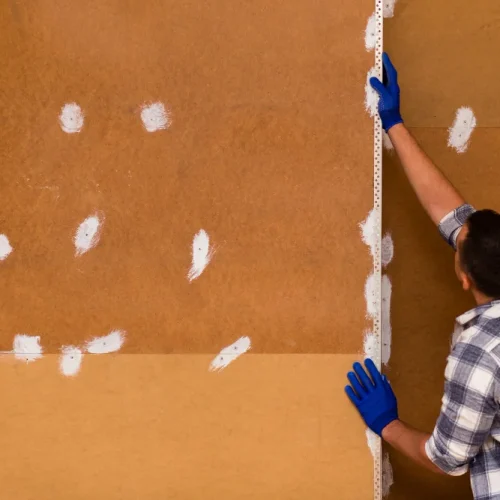“Why does my cat lick me?” I found myself asking this question one lazy Sunday afternoon as my rescue tabby, Luna, gave my arm an unprompted sandpaper-like bath. I’d heard theories before—some heart-warming, others mildly concerning—but I decided to dig deeper. What I discovered changed how I saw her little licks: they weren’t random at all.
Whether you’re a long-time cat owner or new to feline companionship, you’ve probably noticed your cat occasionally licking your skin, clothes, or even your hair. It might seem cute, weird, or even slightly annoying, but it turns out there’s much more to this behaviour than affection or grooming instincts.
Understanding Feline Licking: Instinct or Intent?
Licking is deeply rooted in feline behaviour. In the wild, cats groom each other as a social bonding activity. This is known as allogrooming and it plays a crucial role in forming alliances and maintaining peace in colonies. When your cat licks you, she may be treating you as part of her social group—a fellow feline, in her eyes.
From Mother to Kitten
From the moment they’re born, kittens are licked by their mothers. This not only keeps them clean but stimulates bodily functions and offers comfort. According to Dr. Katy Nelson, a senior vet at Chewy, “Licking is often a learned behaviour from early kittenhood. If a cat was licked a lot by its mother, it may replicate that comfort with its humans.”
So, when Luna licks me, she might be acting out the same caregiving role her mother once played—except now I’m the kitten.
7 Common Reasons Cats Lick Their Owners
Let’s unpack the main motivations behind those sandpaper kisses.
1. Bonding and Affection
The most comforting reason: your cat simply loves you. Licking is a way for cats to express closeness. If your cat is purring, rubbing against you, and then starts licking, chances are she’s in cuddle mode.
“Cats have limited ways of showing affection, and licking is one of them,” explains animal behaviourist Pam Johnson-Bennett.
2. Marking You as ‘Theirs’
Cats have scent glands around their mouths, so licking can leave a subtle scent signature on you. It’s not just sweet—it’s territorial.
In multi-pet households, I noticed Luna licked me more when we adopted our second cat. She was, in hindsight, probably reasserting her claim.
3. Grooming Behaviour
Cats are meticulous groomers, and licking is their way of maintaining hygiene. When they include you in this ritual, they’re saying: You’re family. Let me tidy you up.
But don’t take offence if they focus on a particular spot. They may have detected a scent, residue of food, or simply an area they think needs attention.
4. Seeking Attention
Cats are clever. They quickly learn what gets your attention. If licking leads to pets, food, or playtime, it becomes a useful tool.
Once, while I was working from home, Luna kept licking my wrist. Turns out, it was her subtle way of saying, Step away from the laptop and feed me.
5. Stress or Anxiety
Sometimes, licking can be compulsive. If your cat is excessively licking you, themselves, or objects around the home, it might be stress-related.
Veterinary studies, such as one from the Journal of Feline Medicine and Surgery, link over-grooming with feline anxiety. Changes in the household (like moving house or introducing a new pet) can trigger this behaviour.
6. You Taste Interesting
Cats love intriguing smells and tastes. If you’ve got lotion, sweat, or food residue on your skin, it could explain the sudden attention.
I made the mistake of using a coconut-scented moisturiser once—Luna tried to lick it off my hand like it was a tropical treat.
7. Medical Issues (Rare but Serious)
In rare cases, licking can indicate medical problems such as nausea, dental issues, or even a neurological disorder. If your cat suddenly starts licking obsessively or appears distressed, consult your vet.
Should You Let Your Cat Lick You?
In moderation, licking is perfectly normal. But there are a few things to consider:
- Hygiene: Cat tongues carry bacteria that might not be ideal for open wounds.
- Reinforcement: If your cat uses licking to demand food or attention, be mindful of what behaviour you reinforce.
- Boundaries: If licking becomes annoying or excessive, gently redirect your cat with a toy or treat.
How to Discourage Excessive Licking
If your cat’s licking becomes too much, here are some gentle ways to manage it:
1. Use Redirection
Keep a toy or treat nearby. When your cat starts licking, slowly offer the toy instead. This changes the focus without punishment.
2. Check for Stressors
Look for recent changes in the environment. A new baby? Construction noise? Rearranged furniture? Stress can manifest through compulsive licking.
3. Avoid Reinforcing the Habit
Don’t immediately pet or feed your cat in response to licking if it’s becoming problematic. Wait a few minutes, then reward a calm moment.
4. Consult a Behaviourist or Vet
If all else fails, get professional advice. Persistent licking could signal deeper behavioural or health issues.
Frequently Asked Questions
Why does my cat lick me then bite me?
This often means your cat is overstimulated. They start by licking as affection but may bite gently to signal they’ve had enough.
Is it OK to let my cat lick my face?
While mostly harmless, it’s best to avoid direct contact with eyes or mouth. Cat saliva can carry bacteria like Pasteurella multocida, which rarely but possibly causes infections.
Why does my cat only lick me and not others?
Your cat likely feels especially bonded to you. Cats form selective attachments and may show affection uniquely to their favourite human.
Final Thoughts
If your cat licks you, take it as a sign of trust. Whether it’s affection, taste-testing, or just feline quirks, licking usually comes from a good place. But like all behaviours, it’s important to observe patterns and respond thoughtfully.
Have you noticed a change in your cat’s licking habits? Or does your kitty have a funny licking quirk? Share your story in the comments—I’d love to hear what your feline friend is up to.
Further Reading:
- Signs Your Cat Loves You – RSPCA UK
- Feline Compulsive Disorders – Cornell University
- Why Cats Lick Their Owners – VCA Hospitals
Written by a lifelong cat parent and SEO content strategist who has personally tested coconut lotion licks so you don’t have to.









